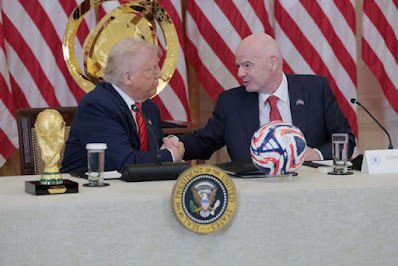Why Iran May Not Play at the 2026 FIFA World Cup
1. Iran Qualified—But Geopolitics Loom Large
-
Sporting success: Iran secured its fourth straight World Cup qualification (seventh overall) with a 2‑2 draw against Uzbekistan on March 25, 2025 — fuelled by twice‑scoring striker Mehdi Taremi
-
Tournament hosts: The 2026 World Cup will be held across the United States, Canada, and Mexico — presenting a major challenge, as Iran's path inevitably traverses U.S. territory.
2. U.S. Travel Restrictions
-
Trump-era visa rules: A 2025 executive memo reinstated travel limitations for Iranian citizens, encompassing both full visa suspensions and stringent vetting
-
Selective exemptions: While players, coaches, and essential staff might gain admission, ordinary fans, government officials, and security personnel would likely be barred
-
Visa hurdles remain: Even athletes face uncertainty—visa applications often require interviews in third countries, with approval rates estimated below 15%
3. Host Nation Constraints
-
Schedule logistics: Every host nation will stage and potentially host knockout-stage matches. Iran could theoretically avoid U.S. venues by being drawn into Group A (all group games in Mexico), but advancing past round one almost guarantees U.S.-based fixtures foxsports.com+5theguardian.com+5news.com.au+5.
-
FIFA’s dilemma: No current regulations forbid Iran’s participation. FIFA could manipulate the group draw to protect them, similar to how Ukraine and Russia were separated in UEFA draws—but such interventions are complex and unprecedented on this scale theguardian.com+1zonalsports.com+1.
4. Rising Military Tensions
-
Regional conflict spillover: Recent military actions—including U.S. strikes on Iranian-linked nuclear sites and missile exchanges—have heightened political friction businesstoday.in.
-
Precedent for bans: FIFA has previously suspended Russia (2022) and Yugoslavia (1990s) amid wartime conduct teammelli.com+4news.com.au+4businesstoday.in+4. A similar ban could be on the table if the geopolitical situation worsens.
5. Fan and Staff Exclusion
-
No spectators: Even if the team is allowed in, Iranian fans will probably be barred from attending matches in the U.S. t
-
Security personnel absent: FIFA exemptions generally don’t extend to government or IRGC-linked figures. That includes security staff often embedded in international delegations .
6. Potential Scenarios & Solutions
| Scenario | Description |
|---|---|
| Full Participation | Iran allowed into all three host nations—unlikely without policy changes. |
| Mexico/Canada Only | Iran placed in a group to avoid U.S.—possible but fails if they advance. |
| Televised Neutral Matches | Iran plays in neutral venues—disruptive and hard to organize at scale. |
| Ban or Suspension | FIFA steps in if conflicts escalate—parallel to past bans. |
To navigate the crisis, various options are being floated:
-
Draw manipulation to avoid U.S. venues for Iran until late stages
-
Diplomatic exceptions, similar to special athlete visas—though untested on this scale.
-
Neutral-ground pre-tournament goodwill matches, perhaps normalizing Iran’s participation zonalsports.com.
7. The Bigger Picture
Iran’s predicament highlights the uneasy intersection of sport and geopolitics. As supporters and players eagerly await the global stage, their country’s world-tournament presence faces real peril—not due to performance but political and security entanglements beyond the pitch.
What’s Next?
-
World Cup draw (Dec 2025): FIFA must clarify group allocations and potential carve-outs.
-
U.S. visa policy updates: Any amendments could alter Iran’s ability to participate fully—or at all.
-
FIFA Council decisions: The governing body may need to set new precedents balancing politics and inclusion.
Conclusion
Although Iran has earned its place in football's grandest tournament, their ability to actually play hinges on diplomatic dialogue, visa policies, and FIFA's willingness to adapt. The coming months will determine whether Team Melli takes the field—or stands sidelined by politics.





.webp)







0 Comments